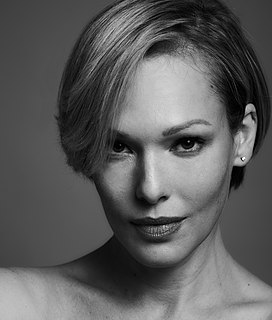Цитата Грейс Ли Боггс
Жители Детройта занимаются не только городским садоводством. Они начинают новую форму обучения. Они пытаются дать детям образование быть «решителями», а не людьми, которые собираются получить работу в системе. И это огромное изменение, культурная революция.
Связанные цитаты
Жители Детройта занимаются не только городским садоводством. Они начинают новую форму обучения. Они пытаются дать детям образование быть «решителями», а не людьми, которые собираются получить работу в системе. И это огромное изменение, культурная революция. То, что происходит в Детройте, поразило бы вас, если вы привыкли смотреть только на статистику и думать о чернокожих только как о страдальцах, а не как об активистах.
Двадцать процентов американских детей растут в бедности, а это означает, что они получают недостаточное питание, неадекватное медицинское обслуживание, а поскольку у нас очень местная система образования, они не имеют адекватного доступа к образованию. Используя их в качестве отправной точки, вы увековечиваете неравенство. Вот почему здесь, в Нью-Йорке, мэр де Блазио приложил немало усилий, чтобы сосредоточиться на дошкольном образовании, потому что к пяти годам уже существуют огромные различия. Мы, наконец, начали признавать это.
Не образование, а образование определенного рода послужит нам. И нынешняя модель западного образования, ориентированного на города, основанного на школах, которое так часто больше сосредоточено на превращении детей в эффективные корпоративные единицы, а не на любознательных и непредубежденных взрослых, только уведет нас еще дальше по ложному пути.
Нынешняя информационная революция является культурной революцией, социальной революцией, всеобъемлющей технологической революцией, которая затрагивает не только информацию, но и труд, досуг, развлечения, общение, образование, культуру и, таким образом, является частью крупного культурного и социального сдвига.
Мы должны построить свою собственную силу. Мы должны завоевать каждый политический пост, какой только сможем, где у нас большинство чернокожих ... Вопрос для чернокожих не в том, когда белый человек собирается дать нам наши права или когда он собирается дать нам хорошее образование для наших детей, или когда он собирается дать нам работу — если белый человек даст вам что-нибудь — только помните, когда он соберется, он тут же заберет это обратно. Приходится брать себе.
Наша самая большая проблема в этот цифровой век, в который мы вступаем, заключается в том, как мы можем эффективно начать обучать людей для рабочих мест, которые будут существовать, и не заставлять их застревать на рабочих местах, которые исчезнут? И это большое дело. И это требует от бизнеса этой страны, на мой взгляд, в первую очередь требовать изменений в системе образования, а также разрабатывать инновационные, творческие способы обучения людей навыкам, которые необходимы для будущих рабочих мест.
Мы глупы, если думаем, что покончим с массовым заключением, если только мы не готовы смириться с реальностью, что огромный процент бедняков останется безработным, заблокированным от основной экономики, до тех пор, пока у них не появится качество. образование, которое хорошо готовит их к новой экономике. Должно быть гораздо больше сотрудничества между двумя движениями и более высокая оценка работы защитников в каждом сообществе. Это должно быть движение за образование, а не за тюремное заключение, за рабочие места, а не за тюрьмы.
Когда вы поступаете в педагогический колледж, у вас есть стремление изменить жизнь людей, любить детей, работать с детьми, но ничто из этого не утверждается в вашем педагогическом колледже. Затем вы начинаете работать в школах, особенно в таких местах, как Нью-Йорк и Чикаго, с которыми я лучше всего знаком, и обнаруживаете, что эти огромные стремления выбиваются из вас очень систематическим образом — и люди продолжают упорствовать.

































